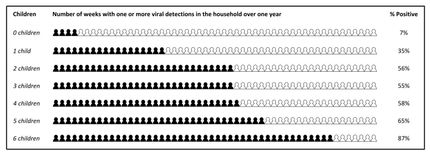Alnylam and Yale University Scientists Demonstrate Therapeutic Silencing of Disease Target
Alnylam Pharmaceuticals, Inc. announced publication of data demonstrating that an RNAi therapeutic can silence angiopoietin 2 (Ang2), a key mediator in acute lung injury. In a paper published in Nature medicine, scientists from Yale University and Alnylam demonstrated inhibition of acute lung injury and cell death in animals with administration of small interfering RNAs (siRNAs), the molecules that mediate RNAi, targeting Ang2. These in vivo data showed silencing of Ang2 in the lung, and contribute to existing data demonstrating the potential for developing RNAi therapeutics that target diseases associated with the lung, such as respiratory syncytial virus (RSV) infection, influenza, and asthma.
The study demonstrated that acute lung injury caused by cell death, high and potentially toxic concentrations of oxygen (hyperoxia), and the resulting excess fluid in the lungs (pulmonary edema), may be controlled by the Ang2 protein. Data showed that local intranasal administration in mice of an siRNA targeting Ang2 resulted in specific inhibition of messenger RNA (mRNA) by more than 60 percent. A proportionate drop in Ang2 protein levels was also observed. In addition, acute lung injury was reduced to near non-injury levels as measured by statistically significant reductions in lung inflammation and cell death. Importantly, mRNA levels of other genes were not affected by administration of the siRNA, including VEGF, Bcl-2 and (beta)-actin. The study was performed in the laboratory of Jack Elias, M.D., Chair of Internal Medicine at Yale University School of Medicine.
Other news from the department research and development

Get the life science industry in your inbox
By submitting this form you agree that LUMITOS AG will send you the newsletter(s) selected above by email. Your data will not be passed on to third parties. Your data will be stored and processed in accordance with our data protection regulations. LUMITOS may contact you by email for the purpose of advertising or market and opinion surveys. You can revoke your consent at any time without giving reasons to LUMITOS AG, Ernst-Augustin-Str. 2, 12489 Berlin, Germany or by e-mail at revoke@lumitos.com with effect for the future. In addition, each email contains a link to unsubscribe from the corresponding newsletter.
























































